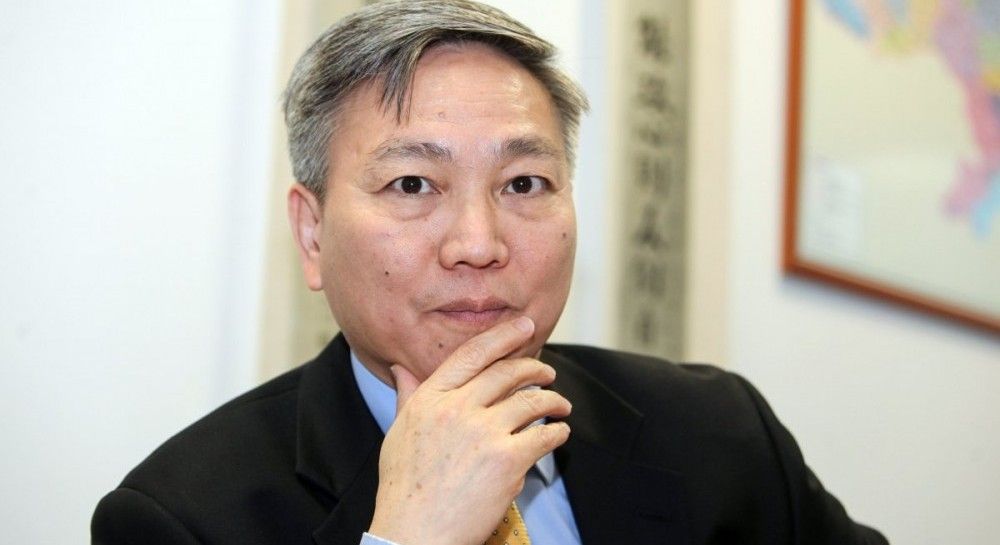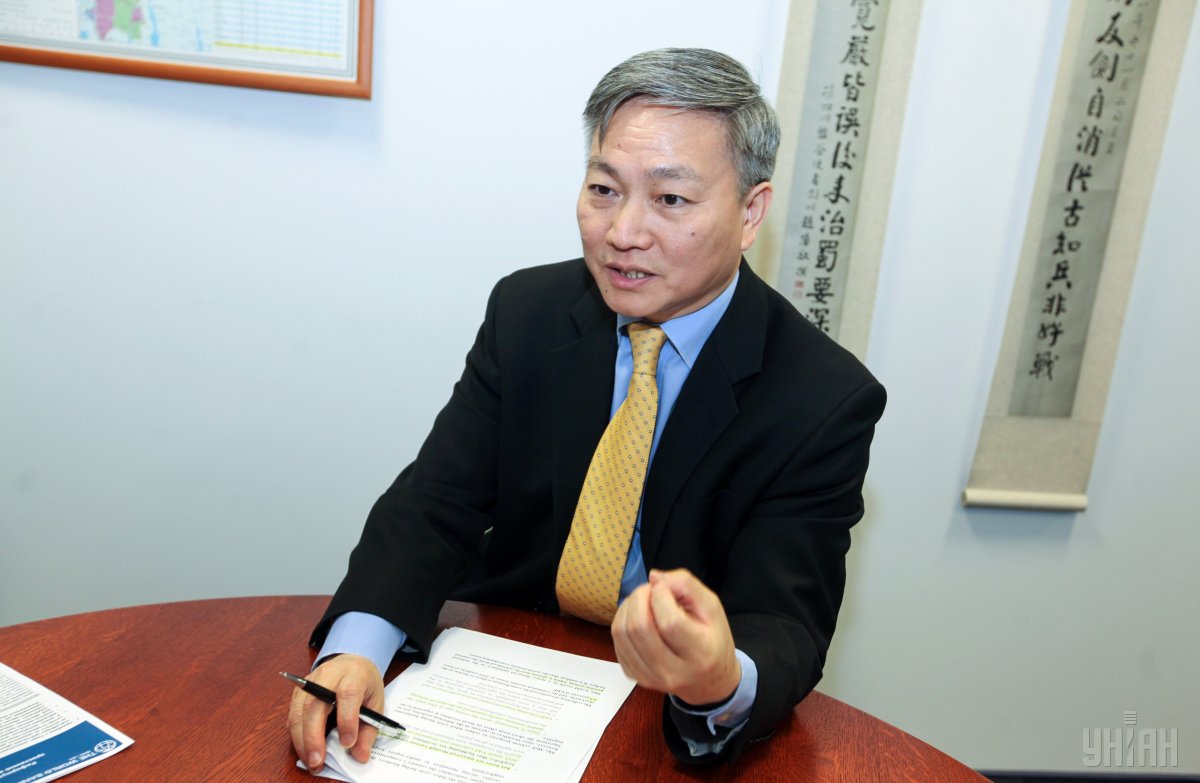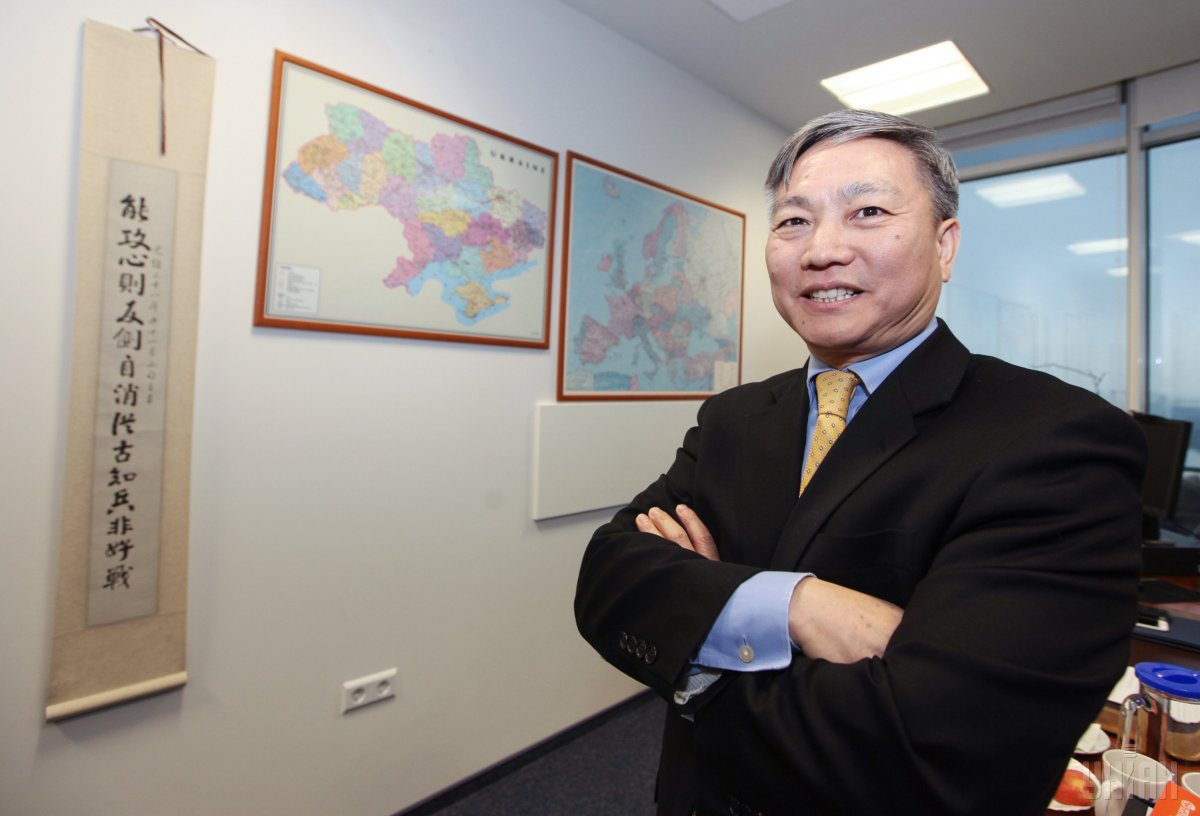
World Bank Country Director for Ukraine: "There is a risk that reforms will not move forward"
World Bank’s Country Director for Ukraine Qimiao Fan is leaving his post due to rotation. In his last interview before leaving, he told UNIAN about the future strategy of the World Bank’s operations in Ukraine and priority steps needed to be taken by the Ukrainian authorities.
World Bank Director for Ukraine, Belarus and Moldova Qimiao Fan is set to leave his office in Ukraine, which he took four and a half years ago, in February 2012. Fan has been working in the World Bank's structures for over 20 years specializing on the post-Soviet countries and South Africa. Prior to joining the World Bank, he was a research fellow at the London School of Economics for developing countries and countries with economies in transition.
In an interview with UNIAN, which was Mr. Fan’s last one prior to his departure to his new office in Bangladesh, the World Bank official talked about the Bank’s new strategy in Ukraine and the problems with the development of the Bank’s projects in the country. He also praised the efforts of the Ukrainian authorities to implement key economic reforms and gave some recommendations.
The World Bank has been one of the key investors in Ukraine for more than two decades. With its support, Ukraine has implemented more than 70 projects and programs worth a total of nearly $12 billion as well as a range of technical and advisory assistance programs. World Bank-funded projects help Ukraine create new jobs, improve infrastructure, stimulate private sector development and to introduce energy-saving technologies.

What do you feel when leaving Ukraine? Did you feel well in our country?
I regret that I have to leave, I have enjoyed every minute of my four and a half years here in Ukraine. I am leaving with a considerable amount of optimism, but also with some serious concerns. Ukraine has undertaken the enormous amount of reforms in the last two years, and the country has taken some very important steps in this transition. But I am concerned as I think the reforms have not been completed yet, and more needs to be done.
In the last two and a half years, Ukraine has resembled someone who’s riding a bicycle uphill. I think we have climbed quite a bit. But this is a very steep hill, and we’re not at the top yet. And we need to continue to pedal that bicycle upwards. If we don’t continue to pedal, we will fall back. And you know what happens when you’re up in the hill and you fall back. That fall is going to be very hard, and it can be even harder to get up next time around. So my hope is that Ukraine will not stop in the middle of that hill, and it will continue to pedal upwards. When it gets to the top, it will be able to ride a smoother path. And as long as Ukraine continues riding that path, I think, the international community, particularly The World Bank Group will continue to help, to support Ukraine, to push it from behind.
What can you tell us about your successor?
It is better you talk to her when she’s on board. We have announced that Ms. Satu Kahkonen is the newly appointed Country Director. Ms. Kahkonen will be based in Kyiv and will take on her duties from July 25, 2016. I can say that she is a very experienced macroeconomist. She has worked in the region for quite a number of years and she understands the region well.
We will continue to have to deal with the economic problems arising in Ukraine, Belarus and Moldova. Therefore, it is quite critical for the new country director to have this kind of macroeconomic experience and expertise as she does. It is important to keep in mind that the World Bank Group is an institution, where leadership does matter. It’s the institution’s setup, the policies, the process and procedures, and the expertise of the World Bank Group that matters. And I am very proud to say that we have an outstanding team working on Ukraine. Regardless who the country director will be, I am sure they will continue to do an outstanding job.
Will the World Bank policy toward Ukraine change after you leave?
Absolutely not. That’s important for international institutions: directors change, but policies do not. The World Bank Group’s assistance to the Ukrainian government is guided by a partnership strategy. The current strategy will be coming to the end shortly, and we are in the process of preparing a new strategy.
The preparation of that new strategy is based on our analysis of the key challenges and key constraints in the country for a sustained and more inclusive growth, as well as on the priorities highlighted by the Ukrainian authorities and the commitment of the authorities to reforms, as well as the lessons we learned from implementing the current strategy. In short, I want to assure you that the World Bank Group’s assistance strategy to Ukraine will not change because of the change of a country director.
Will the World Bank change the volumes of funding or its macroeconomic forecasts for Ukraine as part a new strategy?
I think at this moment, our macroeconomic forecast for Ukraine remains unchanged. The whole purpose of preparing that strategy is to actually look at priority areas of our support and the amount of support will be determined in the process. The level of our support will very much depend on not only whether the country continues to stabilize, but also whether the country’s economy can grow. And, more importantly, it will depend on whether reforms will continue. And thirdly, it will also depend on how effectively our existing investment portfolio is implemented. These will be very important factors in the preparation of the new country partnership strategy. Unfortunately, the implementation of our current investment portfolio has not been satisfactory.
What are the lost profits? How much money Ukraine could have received from the World Bank?
Our current investment portfolio in Ukraine is about $3.1 billion, and of that 3.1 billion, about $2.1 billion remains non-disbursed. Two years ago, our disbursement ratio was about over 30%. In the last 12 months, the disbursement ratio in Ukraine is about 10%. This is a huge difference. If the authorities can improve implementation of the projects and if they can improve disbursement from 10% to 20%, we will be able to double the amount of money that goes into the economy. 10% of that non-disbursed amount is about $200 million. Clearly, you can do the Math.
What is the reason for the low disbursements on the loans provided by the World Bank?
Firstly, we have increased our lending quite significant in the last two years, so there are a lot of new projects. In general, new projects take time to get started. The second reason is that you have a very unfavorable macroeconomic environment and that macroeconomic environment does have an impact on the ability of contractors to deliver things on time. Thirdly, I think it’s because there are still very cumbersome processes and procedures in the Ukrainian government’s implementation of these projects. And lastly, clearly, frequent changes in government ministers, deputy ministers and project directors have a very significant impact n the pace of implementation.
I very much hope that the Government can focus on the last two issues, further streamlining its own procedures and trying to do as much as they can to minimize the impact of the frequent changes of government officials on project implementation.
Can you name those ministers which blocked the World Bank projects in Ukraine?
The issues I talked about affect all ministries. Unfortunately, these factors affected all projects. Obviously, some ministries take more proactive measures than the others, but all of them need to do more. This is an issue affecting to whole government and all the implementing agencies.
How do you assess the results of the reforms carried out in Ukraine?
I think we have already seen significant results in the last two years. The number of reforms, the kind of reforms that Ukraine has implemented in the last two years is quite remarkable. In these two years, Ukraine has moved to a flexible exchange rate, Ukraine has undertaken significant fiscal consolidation, and Ukraine has started to clean up the banking system and stabilized the banking sector by putting 77 unviable banks into the Deposit Guarantee Fund for resolution.
And Ukraine has taken what I think are courageous steps to reform tariffs, particular gas tariffs, at the same time, putting in place a more targeted social assistance program to help to mitigate impact of this tariff increases on a poor. This reform is extremely important for a number of reasons. First, as you know very well, the gas sector has been a major source of corruption in Ukraine in the last many years. And this reform in the gas sector has helped to remove a major source of corruption. And secondly, as you know, Naftogaz deficit has been a major source of fiscal instability in the country. In many ways, I think the low tariffs have also not helped energy efficiency and country’s energy security.
There are other reforms that the government has undertaken in the business environment. They have taken some initial steps to reduce business regulation, to reduce inspections and the number of payments. And the government has also starting to improve the efficiency and capability in public spending, particular by introducing e-procurement and a more transparent procurement process.
These are very important reforms a country has undertaken in the last two years. And I think it is because of these reforms we could say that Ukraine is riding a bicycle in the middle of that hill. But clearly, these reforms are not enough. The macroeconomic stability is still fragile and the banking sector also remains quite weak. And clearly, the business environment needs improvement. In particular, I think the public has not seen real progress in the fight against corruption. So, clearly more reforms are needed: a judicial reform, public administration reforms. Through these kind reforms, we can then help the country to really transform institutions. And these really are the kind of reforms that can be even harder. You can face a lot more resistance from vested interests.

Do you believe that the government officials will finish these reforms?
We have seen continued commitment to reforms. But clearly, continuing reform is not guaranteed. I am sure you have ridden a bicycle uphill. It is not easy. Sometimes, there are side winds that can push you off your course. And sometimes, there will be obstacles on the course. Frankly, I am concerned about whether the authorities will continue to pedal the bicycle harder.
We have seen in the past in Ukraine that when things got better, reforms slowed down or stopped completely. So, I am concerned that as the economy stabilizes, and there is no desperate need for Ukraine to have international financial support, and obviously with a resistance from the vested interests, there is a risk that reforms will not move forward. I think that’s something all of us should work to prevent.
What are the five key steps the Ukrainian authorities need to take?
Ukraine, given a significant backlog of structural reforms that have accumulated in the last years, there are many reforms that are needed. If I have to name five steps, they will be the following. Firstly, Ukraine has to take measures to safeguard macroeconomic stability. This means that Ukraine needs to reform its tax system and improve tax administration. You also need to improve your pension system because in the medium term, this system represents a huge vulnerability to the country’s fiscal sustainability. At the moment, pension expenditures in Ukraine account for about 13.4% of GDP. Serious and comprehensive measures need to be taken to improve the pension system. It is also necessary to continue to stabilize, restructure and recapitalize the banking sector. That’s the first set of priority reforms related to macroeconomic stability.
The second priority area includes reforms that are needed to resume growth and create new jobs. The authorities need to create fiscal space for public investment and improve the efficiency of public investment. These investments are needed to improve infrastructure, which is important for growth. Authorities also need to continue improving the business environment in Ukraine. Here the key is not just about reducing the number of regulations, inspections and permits. The key here is about protecting property rights. This is an area where I think the authorities have not done enough in the last two years. In addition, the country obviously needs to reform the state-owned enterprises sector, to reduce the footprint of state-owned enterprises in the country and promote competition in the economy. We are talking about privatization, improving corporate governance and further steps to reduce the influence of oligarchs. This is the second set of priorities.
The third set of priorities is related to basic public service delivery. Basic services provided for the population need to be improved so that the people could actually feel that things are changing for the better. Here, one particular area of reform in the health sector is about health financing. In fact, Ukraine actually has a huge overcapacity of health facilities – it has 40% more beds per capita than the WHO European average. That’s because the current health financing is tied to input liked the number of beds. Ukraine needs to move away from that and move toward having the money follows the patients. This means the money should be allocated according to the number of patients you have and the type diseases these patients have. The second area of service delivery is really about making social assistance much more targeted to the poor and those who actually need it. Ukraine still spends a significant amount of public expenses on social assistance, but this assistance is not really targeted to the poor. The third area related to this service delivery is really in the whole decentralization agenda. We need to make sure that the local authorities have both the financial means as well as technical and administrative capacities to deliver the services they are asked to deliver. This is the third priority set.
The fourth area is a judicial reform and strengthening the rule of law. This сan be absolutely essential for a functioning market economy and for reducing corruption. This is an area that has seen very little progress in the last two years and a lot more efforts are needed.
And, the last priority is a public administration reform. Many of the problems you are facing stand from the weaknesses in the public institutions. Again, this is an area where very little progress has been made in a last two years, and more needs to be done.
And cutting across all these five areas is the key issue of the fight against corruption. You need to fight corruption by reducing the sources of corruption. And you need to improve the transparency of the processes so that it’s harder for people to be corrupt. Of course, you need mechanisms needed to prosecute those who are corrupt and to punish them. This is an area where the public expects more to be done.
What are your future plans? Maybe you decide to stay in Ukraine?
My heart will always be with Ukraine. I spent four and a half years here. I have put my heart and soul in Ukraine, Belarus and Moldova. They will always have a special place in my heart. I will be moving to my next assignment. I will be the World Bank’s Country Director for Bangladesh, Bhutan and Nepal. But I'll be watching Ukraine from afar.
Is it possible that your next rotation in four and a half years will bring you back to Ukraine?
I would love to.

